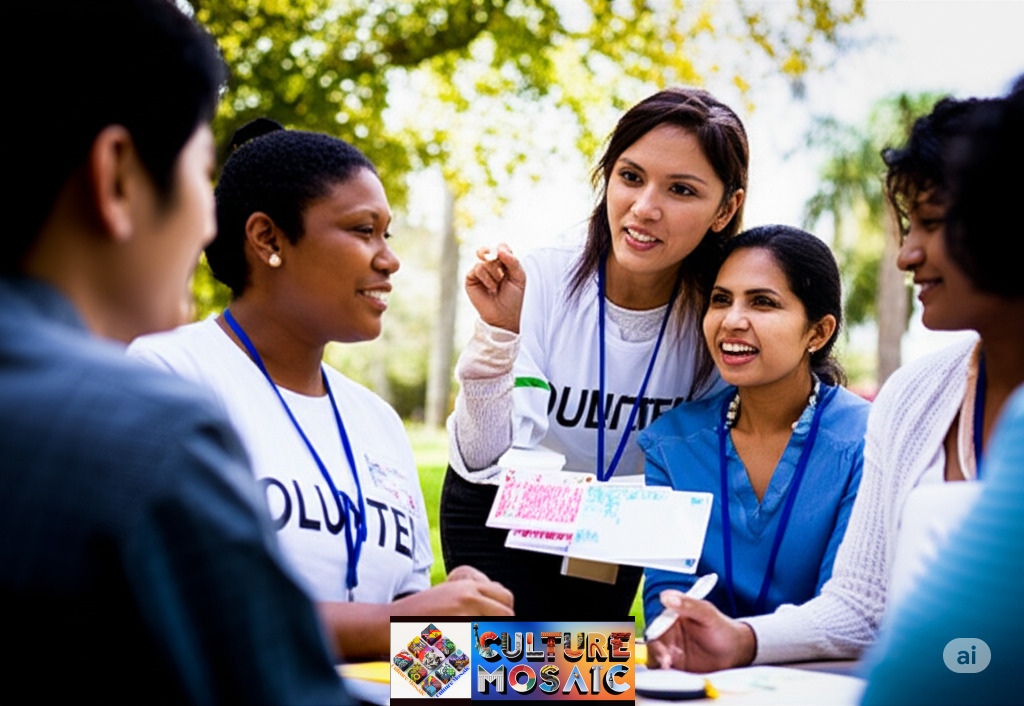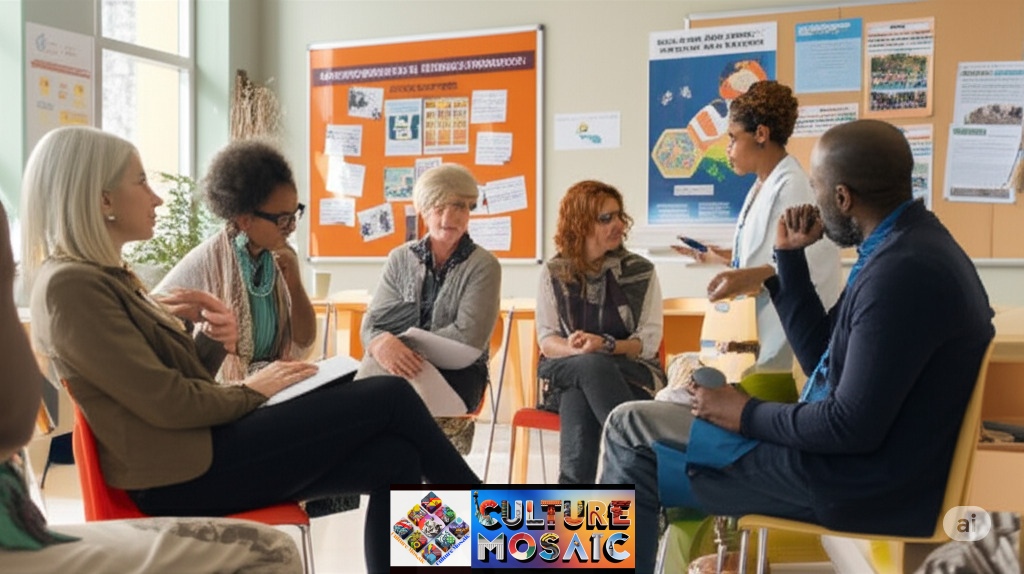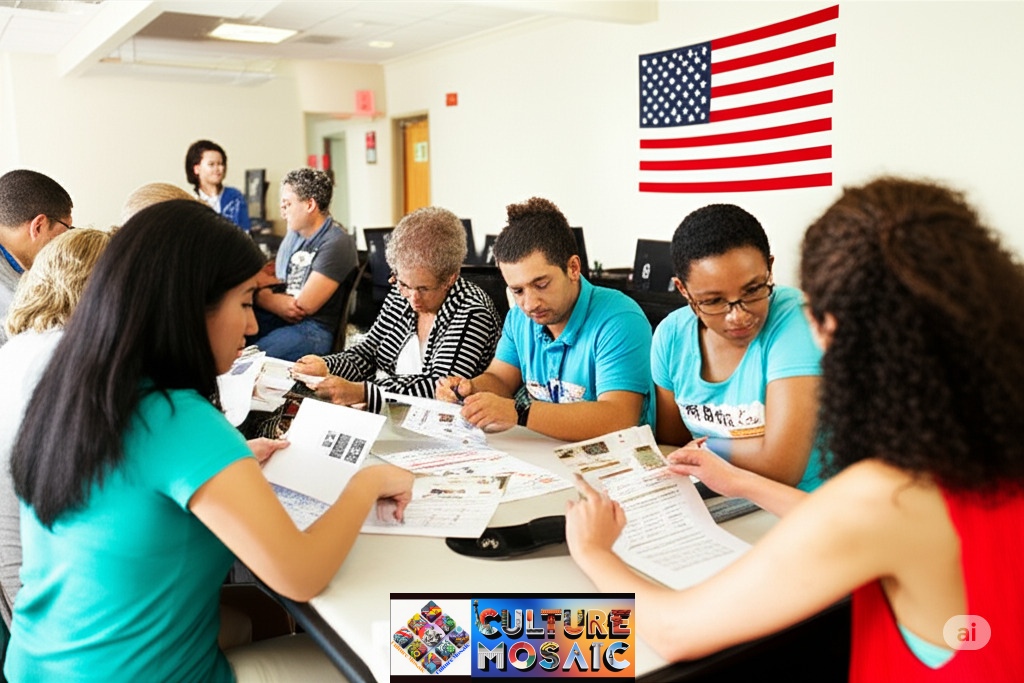How to Volunteer for Civic Education Programs: Volunteering for your local civic education activities could be one of the most fulfilling activities in which to give your time. As a volunteer for civic education programs, you’re not merely assisting citizens in learning about government and democracy. You’re actually building the underpinning of our civilization by making certain that people know how to engage in the democratic process.
Whether retired educator, college student, or just an advocate for the potential of engaged citizenship, there are numerous ways to make a meaningful contribution. This handbook will take you through all you’ll want to know about volunteering in civic education, from identifying the best program to making the greatest impact.
Knowing What Civic Education Programs Do

Civic education programs are bridges between intricate governmental systems and ordinary citizens. They educate individuals about their responsibilities, rights, and how the government functions at local, state, and federal levels. By volunteering for civic education programs, you are part of this critical educational endeavor.
Most programs emphasize applied knowledge that individuals can utilize right away. This encompasses knowing how to vote, what various elected officials do, how to reach representatives, and how local government intersects with everyday life. Most programs also address constitutional foundations, the judicial system, and how legislation is made.
The virtue of civic education is that it enables individuals to become active members instead of passive spectators. Each individual who acquires civic knowledge through such programs becomes a more informed decision-maker and an active participant in their own community.
Why Communities Need Civic Education Volunteers
How to Volunteer for Civic Education Programs: The need for civic education has never been greater, yet funding is scarce. Civics requirements have been cut in many schools, creating shortcomings in fundamental civic knowledge. Recent polls indicate that large numbers of Americans are unable to identify their representatives or describe the process of how bills become laws.
This is where volunteers come in. Professional teachers and program administrators can only educate a certain number of individuals. When citizens volunteer for civic education programs, they amplify the reach and effects of these programs tenfold.
Volunteers offer authenticity and relatability that students connect with. A neighbor who teaches local government is different from an abstract expert. Your own experiences with civic life, positive or difficult, bring real-world relevance that textbooks do not.
Finding the Right Civic Education Program for You

The civic education landscape consists of many kinds of organizations, each with varied strategies and audiences. There are national nonprofits such as the League of Women Voters with chapters across the country, providing standardized materials and training for volunteers. These organizations tend to have established volunteer for civic education programs with definite structures and support mechanisms.
Local community colleges regularly host citizenship courses and voter education seminars. Such colleges would typically accept volunteers to provide translation, technical support, or group discussion. The educational environment offers legitimacy while enabling direct volunteer participation.
Libraries have become key civic education centers, featuring everything from constitution debates to candidate debates. Library systems across the country actively solicit volunteers to assist with programming, research support, and event planning. The neutral, welcoming atmosphere of libraries makes them perfect spaces for civic learning.
Getting Started as a Civic Education Volunteer
How to Volunteer for Civic Education Programs: Beginning your volunteer journey requires some preparation, but most organizations make the process straightforward. Start by researching programs in your area and identifying which ones align with your interests and availability. Consider whether you prefer working with specific populations, such as new citizens, high school students, or senior citizens.
Get in touch with potential organizations directly to find out about volunteer needs. Some programs have background checks or special training, and others accept volunteers right away. Inquire about time commitments, as these can range from one-time assistance at an event to weekly commitments.
Most organizations offer orientation and training to new volunteers. This preparation usually includes the mission of the organization, some basic civic concepts, and facilitation or teaching skills. Don’t be concerned if you don’t feel like a government expert. The training will get you ready, and your passion tends to be more important than having lots of prior knowledge.
Essential Skills for Civic Education Volunteers

Effective civic education volunteers have some common traits, but you don’t have to have all of them when you begin. Good communication abilities assist, but above all, patience and a sincere desire to assist people learn are necessary. It takes practice to be able to explain difficult things in uncomplicated language.
Cultural sensitivity then becomes paramount when interacting with multicultural populations. Much civic education is provided to immigrants, individuals of mixed socioeconomic status, and individuals with disparate educational backgrounds. Being respectful and open in each encounter makes for improved learning environments.
Technical skills are worth having, particularly as increasing numbers of programs involve technology. Much volunteer work does not, however, need highly technical expertise. Organizations tend to match volunteers with disparate skill sets to make multidimensional teams.
Working with New Citizens and Immigrants
How to Volunteer for Civic Education Programs: Perhaps the most fulfilling part of volunteering for civic education programs is assisting new Americans in becoming familiar with their new country’s democratic system. These programs tend to be coupled with hands-on life skills, making them all-encompassing support for individuals in a new culture.
New citizens bring unique perspectives and genuine enthusiasm for learning about American democracy. Their questions often reveal assumptions that native-born Americans take for granted, leading to deeper discussions about how government actually works. This dynamic creates rich learning experiences for everyone involved.
Language issues pose challenges as well as opportunities. While some volunteers act as interpreters, others learn that visual aids, role-playing, and activity-based training bridge the language gap. Patience and creativity are found to be more important than multilingual capabilities by most effective volunteers.
Supporting Youth Civic Education

Youth are the future of democratic engagement, which is why youth programs are so crucial. Volunteering with civic education programs aimed at students is an investment in long-term civic health. Programs run the gamut from elementary school presentations to high school mock trials and college voter registration drives.
Youth programs often emphasize active learning through simulations, debates, and community projects. Volunteers might help students organize mock elections, visit government buildings, or interview local officials. These experiential approaches make civics come alive in ways that traditional classroom instruction sometimes cannot achieve.
These efforts involve working with youth, which demands a high level of energy and flexibility. Young people pose difficult questions and may also display cynicism regarding political processes. Volunteers who accept these questions while pointing out the positive examples of civic activity work best.
Adult Education and Community Outreach

How to Volunteer for Civic Education Programs: Adult civic education comes in all shapes and sizes, ranging from structured courses to unstructured community discussion. These initiatives typically address short-term, problem-solving needs such as learning about ballot initiatives, gaining access to government benefits, or engaging in local planning decisions.
Adult learners come to civic education with life experience and particular issues of interest. A parent concerned about school finance learns civics differently from a senior concerned about health care policy. Successful volunteers learn to relate abstract governmental concepts to concrete, everyday situations relevant to their publics.
Community outreach frequently occurs in non-traditional environments such as community centers, houses of worship, or even food stores. Such informal settings may prove less threatening than formal classrooms and facilitate more open-ended discussion of civic issues.
Digital and Remote Volunteer Opportunities
Technology has expanded options for those wanting to volunteer for civic education programs. Remote volunteering allows people with transportation challenges, time constraints, or geographic limitations to contribute meaningfully to civic education efforts.
Virtual platforms host online citizenship courses, voter information webinars, and virtual discussion forums regarding current events. Volunteers may facilitate online discussions, develop digital materials, or assist with technical services for virtual events. Volunteers need varying skills from in-person volunteering but receive distinct benefits.
Social media management is yet another digital volunteer assignment. Numerous civic education organizations require assistance in maintaining Facebook pages, developing Instagram posts, or promoting email newsletters. These assignments synthesize civic enthusiasm with digital marketing talent.
Training and Professional Development for Volunteers
High-quality civic education programs invest in training their volunteers because well-trained volunteers produce improved experiences for learners. Training generally addresses both content expertise and teaching methods, so the volunteers feel competent in their activities.
Training content can involve constitutional fundamentals, the mechanics of elections, or local government organization. Training also focuses on teaching active listening, effective questioning, and group dynamics management. Oftentimes, volunteers find teaching enjoyable and seek out further educational training.
Continuing professional development ensures volunteers are up to speed with shifting laws, emergent instructional techniques, and changing community needs. This may involve workshops on serving certain groups of people, election process updates, or instruction in new educational technology.
Building Long-term Relationships in Civic Education
The most effective volunteers tend to build long-term relationships with the organizations they volunteer with and the individuals they serve. As you regularly volunteer for civic education programs, you are joining a community that shares common objectives of having more vigorous democratic participation.
Long-term volunteers may assume greater responsibilities, including training newer volunteers, creating curriculum, or speaking on behalf of the organization at community events. These enhanced responsibilities open opportunities for leadership growth while making more important contributions to organizational achievement.
Relationships with participants in the program can be just as fulfilling. Volunteers tend to remain in contact with graduates of citizenship classes, are invited to naturalization ceremonies, or hear about the civic engagement of participants. These personal connections supply concrete proof of volunteer impact.
Measuring Your Impact as a Volunteer
How to Volunteer for Civic Education Programs: Knowing your effectiveness as a civic education volunteer keeps people motivated and increases performance. Impact measurement in this line of work extends beyond basic metrics such as hours served or individuals engaged, although these figures do give informative baselines.
Qualitative indicators tend to be more telling. These could be feedback from participants, accounts of heightened civic participation, or signs of developing self-esteem in students. If an individual casts their first-ever ballot, calls their representative regarding a concern, or goes to a city council session due to what they heard, your volunteer efforts have been a success.
Some activities employ systematic evaluation measures to gauge knowledge acquired, while others depend on casual indicators such as heightened class participation or post-questions. Frequent introspection based on your activities ensures that you notice improvement that may not be immediately apparent.
Overcoming Common Challenges in Civic Education Volunteering
All volunteers encounter challenges, and being aware of universal issues enables you to anticipate and manage them. Communication barriers head the list for most volunteers serving with multicultural groups. But effective volunteers understand that communication is more than language, with the use of visual presentations, demonstrations, and tolerance used to fill gaps in language.
Political polarization is another major issue. Civic education strives to be apolitical, but something always happens that creates political debates. Successful volunteers learn to respect diverse opinions but keep the focus on governmental functions and not party stands. This does need skill and repetition, but it is necessary to sustain inclusive classrooms.
Burnout among volunteers can happen when individuals assume too much or become overwhelmed by the scope of civic education requirements. Effective long-term volunteers pace themselves, acknowledge little victories, and recall that their individual efforts join together with many others to effect positive change.
Creating Inclusive and Accessible Programs
Contemporary civic education should embrace individuals from diverse backgrounds and capabilities. As you volunteer for civic education initiatives, you are part of endeavors to facilitate democratic engagement for all. These are individuals who have disabilities, limited English proficiency, and those from excluded communities throughout history.
Physical accessibility ensures that meeting locations accommodate wheelchairs and other mobility devices. However, accessibility extends beyond physical spaces to include communication methods, learning materials, and program scheduling. Volunteers often help adapt materials for different learning styles or translate concepts into multiple languages.
Cultural responsiveness involves recognizing that civic participation differs between communities. Some cultures value group decision-making more than voting as individuals, and others have ambivalent relationships with government power. Successful volunteers engage these differences with open-mindedness instead of judgment, learning to connect variations in civic tradition with American democratic practice.
The Future of Civic Education Volunteering
How to Volunteer for Civic Education Programs: Civic education keeps developing as technology evolves and social requirements shift. Upcoming volunteers will find themselves facing more blended programs that integrate face-to-face and online components, greater emphasis on media literacy and disinformation, and more attention to local government involvement.
Climate change, economic disparities, and social justice concerns are pushing new models of civic education that relate abstract governmental principles to immediate community concerns. Volunteers are increasingly serving to make it possible for people to see how democratic processes can solve real-world issues they encounter.
The consistent demand for civic education makes volunteer opportunities expand further. As communities become more aware of the link between civic knowledge and democratic well-being, funding for these programs gains momentum. Volunteering is your contribution to this good trend while you build your own civic participation skills.
FAQs About Volunteer for Civic Education Programs
- What are the qualifications that I need to volunteer in civic education programs?
The majority of civic education programs open their doors to volunteers with different backgrounds and levels of experience. You should not have any teaching experience or higher education in political science. The qualifications are more about desire for civic participation, tolerance with learners, and a willingness to train. Background checks may be necessary for some programs, particularly those that work with children, but it is usually a straightforward process. - How much time do I need to commit as a civic education volunteer?
Time commitments range from very minimal to quite substantial, depending on the program and your schedule. Some activities take only a few hours for a one-time event such as a voter registration drive or election forum. Others take 2-4 hours per week for repetitive classes. Flexible scheduling is usually offered by most organizations, so you can begin with minimal commitment and build up further over time. - Do civic education programs offer training for new volunteers?
Yes, legitimate civic education programs include thorough training for new volunteers. Training will include the organization’s mission, fundamental civic principles, teaching or facilitation strategies, and program-specific requirements. Training could be done in a weekend workshop, through evening sessions over a period, or through online modules. There may be ongoing support and mentorship to follow as you become experienced. - May I volunteer from home for civic education programs?
Yes. Most organizations now provide remote volunteer positions, particularly after the widening of digital programming during the pandemic. Remote jobs can include conducting online workshops, developing digital materials, social media management, virtual tutoring for citizenship tests, or technical assistance for online events. People with transportation issues or tight schedules find such opportunities most useful. - How do I handle questions on partisan political topics by participants when engaged in civic education?
Civic education initiatives attempt to remain apolitical but recognize that political issues necessarily come up. When questions arise about partisan topics, emphasize describing governmental mechanisms instead of endorsing particular stances. You could say, “That’s a serious topic that individuals have varying viewpoints on. Let’s examine how citizens can study candidates’ views and give their voices by voting and calling representatives.” Most shows offer rules for dealing with those situations in volunteer training.

